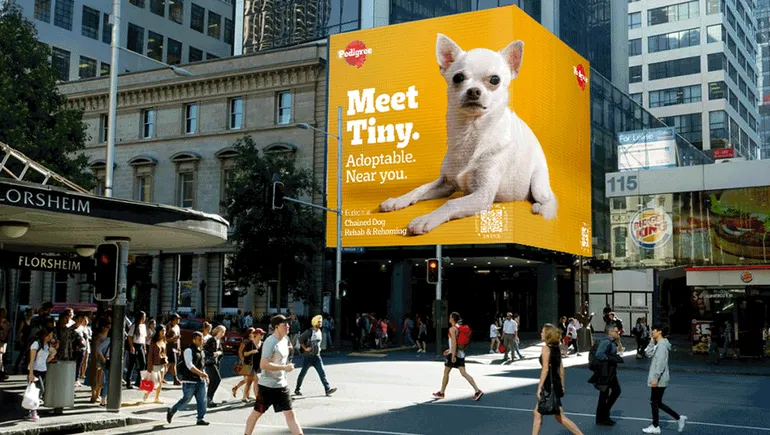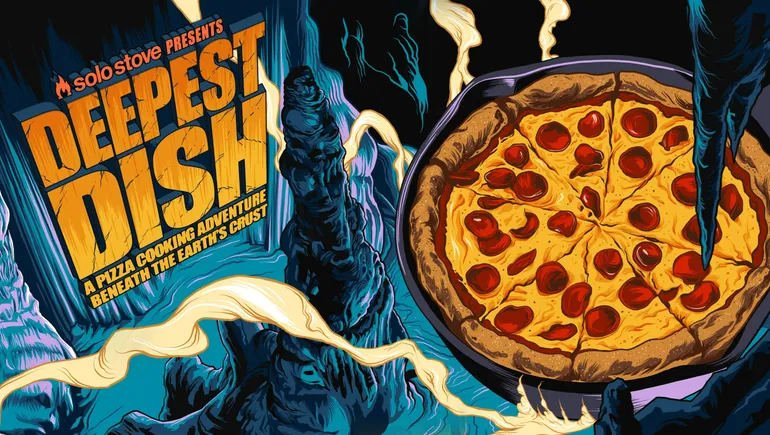
Why McDonald’s leveraged buzzy Szechuan sauce to boost its app
McDonald’s last month brought back its Szechuan sauce — the source of countless internet memes — for a limited time. The offer had one key condition: The savory condiment was only available through the burger chain’s mobile app.
For a global company whose digital sales last year rose 60% to $18 billion systemwide in its top six markets, the Szechuan sauce promotion was another sign of how the McDonald’s app had become a major marketing channel since its introduction five years ago. Its functionality has been expanded from mobile ordering and payments to include a loyalty rewards program.
“McDonald’s efforts have the intended benefit of driving a controlled increase of new users to its app,” Britt Mills, senior director of customer experience at ad-tech company Mobiquity, said by email. “This is significant as it’s further proof of brands looking internally to ensure steady growth.”
McDonald’s is among the restaurant companies that have navigated restrictions on in-door dining during the pandemic and become more dependent on delivery and takeout orders. More recently, rising commodity and labor costs have led the company to hike menu prices, which risks alienating budget-minded consumers.
Promotions like the mobile-only offer for Szechuan sauce that onboard more app users help the company to gain more insights into consumer spending habits. For quick-service restaurants (QSRs), the information is a key resource in enhancing the customer experience (CX) and encouraging repeat business.
“Mobile exclusivity is a smart move from McDonald’s, and QSRs in general, as it opens up a direct pipeline of first-party customer data,” Mills said. “By offering these exclusive deals via mobile apps and acquiring first-party data on individual customers, McDonald’s and any QSR engaging in similar behavior are able to tailor future offers and marketing messages.”
Mobile exclusivity is trending
McDonald’s has also leveraged its celebrity menus to drive app downloads. The chain’s efforts to drive app downloads and orders come as other restaurant chains embrace similar strategies. As college basketball fans got ready for the March Madness tournament, Wendy’s, Chipotle Mexican Grill, Dunkin’ and Subway all offered deals and special rewards through their mobile platforms.
Taco Bell, the chain owned by Yum! Brands, this year launched its mobile subscription plan after testing the concept among a handful of restaurants. Its Taco Love’s Pass, which can only be found on its app, lets customers redeem one of seven menu items a day for 30 straight days at participating U.S. locations. Subscribers pay $10 a month for the pass, which can be renewed for another month-long period.
While many restaurant chains introduced mobile apps to handle orders and contactless payments before the pandemic, the health crisis magnified the urgency to develop more comprehensive strategies to engage consumers through their smartphones.
“Once QSRs started to wrap their heads around how COVID would impact their business, many of them flocked to develop and optimize mobile platforms,” Mobiquity’s Mills said. “Limited availability drives interest, and when consumers ‘have to try that,’ you have the perfect funnel to your mobile app.”
Developing a mobile strategy
Marketers in a variety of industries can expect to see patterns of consumer behavior that come with app-only promotions.
“Offering mobile exclusives has led to results that include spikes in installs which also helps get higher rankings in the app stores, hence it perpetuates the spike in downloads,” Mills said. “We also typically see a spike in positive ratings and reviews and obviously a spike in-store traffic to redeem such offers. In-app engagement usually doubles.”
When a promotional period ends, mobile activity predictably will subside. Demonstrating the ongoing value of the app becomes important in maintaining relationships with consumers whose loyalty extends beyond their short-term responses to discounts and freebies.
“Thinking about what will keep that user engaged after the campaign is how you will drive long-term value from these new app users and customers,” Mills said. ” the value your loyalty program offers during each visit or purchase, access to future exclusive offers, etc.”
Szechuan sauce redux
McDonald’s over the years has reintroduced its Szechuan sauce, which became a viral hit in 2017 when a character in the animated series “Rick & Morty” mentioned it in an episode. Four years ago, the chain brought it back for a limited time and released a three-part podcast that looked at the popular frenzy over the condiment.
Parlaying those moments of public interest into longer-term customer value has become more crucial for marketers, especially as first-party data grow in value.
“Given the death of third-party cookies and stricter data privacy laws taking effect, I expect that we will see QSRs continue to push consumers toward their mobile platforms or loyalty programs with specialty offers and marketing messages,” Mills said. “Additionally, mobile marketing in the QSR industry will become far more personal. Offers must be tailored to individual customers to enable success this year and beyond.”





